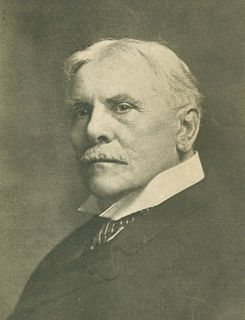A Quote by Hilary of Poitiers
Wages cannot be considered as a gift, because they are due to work, but God has given free grace to all men by the justification of faith.
Related Quotes
And just as there are no crimes so detestable that they can prevent the gift of grace, so too there can be no works so eminent that they are owed in condign [deserved] judgment that which is given freely. Would it not be a debasement of redemption in Christ’s blood, and would not God’s mercy be made secondary to human works, if justification, which is through grace, were owed in view of preceding merits, so that it were not the gift of a Donor, but the wages of a laborer?
The blessed Paul argues that we are saved by faith, which he declares to be not from us but a gift from God. Thus there cannot possibly be true salvation where there is no true faith, and, since this faith is divinely enabled, it is without doubt bestowed by his free generosity. Where there is true belief through true faith, true salvation certainly accompanies it. Anyone who departs from true faith will not possess the grace of true salvation.
Faith is a living, daring confidence in God's grace, so sure and certain that a man would stake his life on it one thousand times. This confidence in God's grace and knowledge of it makes men glad and bold and happy in dealing with God and with all creatures; and this is the work of the Holy Ghost in faith.
I'm afraid that in the United States of America today the prevailing doctrine of justification is not justification by faith alone. It is not even justification by good works or by a combination of faith and works. The prevailing notion of justification in our culture today is justification by death. All one has to do to be received into the everlasting arms of God is to die.
If a preacher is cultured, gentle, earnest, intellectual, and broadly tolerant, the sheep of God run after him. He, of course, speaks beautifully about Christ, and uses the old words redemption, the cross, even sacrifice and atonement-but what is his Gospel? That is the crucial question. Is salvation, perfect, entire, eternal,-justification, sanctification, glory,-the alone work of Christ, and the free gift of God to faith alone?
It has been said that God's gift is also indescribable because of the grace by which it is given. God, who is rich in mercy, gave the world the gift of His dear Son while we were at enmity with Him. Paul says: 'But God commendeth His love toward us, in that, while we were yet sinners, Christ died for us' (Rom. 5:8). Therefore, in Him we are freely given all things: redemption, forgiveness of sins, righteousness, peace, hope, wisdom and knowledge.
Martin Luther described the doctrine of justification by faith as the article of faith that decides whether the church is standing or falling. By this he meant that when this doctrine is understood, believed, and preached, as it was in New-Testament times, the church stands in the grace of God and is alive; but where it is neglected, overlaid, or denied, ... the church falls from grace and its life drains away, leaving it in a state of darkness and death.
Faith is a living, bold trust in God's grace, so certain of God's favour that it would risk death a thousand times trusting in it. Such confidence and knowledge of God's grace makes you happy, joyful and bold in your relationship to God and all creatures. The Holy Spirit makes this happen through faith. Because of it, you freely, willingly and joyfully do good to everyone, serve everyone, suffer all kinds of things, love and praise the God who has shown you such grace.
What is 'grace'? It is God's own life, shared by us. God's life is love. Deus caritas est. By grace we are able to share in the infinitely selfless love of Him Who is such pure actuality that He needs nothing and therefore cannot conceivably exploit anything for selfish ends. Indeed, outside of Him there is nothing, and whatever exists exists by His free gift of its being, so that one of the notions that is absolutely contradictory to the perfection of God is selfishness.



































